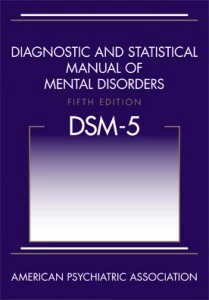 Here's what's coming 'round the mountain. Posting today at dsmv.org, a new draft of the DSM. Don't worry, it's not on the test till it's out of draft and between shiny covers. But, FYI, here's a little bit of what's new:
Here's what's coming 'round the mountain. Posting today at dsmv.org, a new draft of the DSM. Don't worry, it's not on the test till it's out of draft and between shiny covers. But, FYI, here's a little bit of what's new:
* The recommendation of new categories for learning disorders and a single diagnostic category, "autism spectrum disorders" that will incorporate the current diagnoses of autistic disorder, Asperger's disorder, childhood disintegrative disorder and pervasive developmental disorder (not otherwise specified). Work group members have also recommended that the diagnostic term "mental retardation" be changed to "intellectual disability," bringing the DSM criteria into alignment with terminology used by other disciplines.
* Eliminating the current categories substance abuse and dependence, replacing them with the new category "addiction and related disorders." This will include substance use disorders, with each drug identified in its own category.
* Eliminating the category of dependence will better differentiate between the compulsive drug-seeking behavior of addiction and normal responses of tolerance and withdrawal that some patients experience when using prescribed medications that affect the central nervous system.
* Creating a new category of "behavioral addictions," in which gambling will be the sole disorder. Internet addiction was considered for this category, but work group members decided there was insufficient research data to do so, so they recommended it be included in the manual's appendix instead, with a goal of encouraging additional study.
* New suicide scales for adults and adolescents to help clinicians identify those individuals most at risk, with a goal of enhancing interventions across a broad range of mental disorders; the scales include research-based criteria such as impulsive behavior and heavy drinking in teens.
* Consideration of a new "risk syndromes" category, with information to help clinicians identify earlier stages of some serious mental disorders, such as neurocognitive disorder (dementia) and psychosis.
* A proposed new diagnostic category, temper dysregulation with dysphoria (TDD), within the Mood Disorders section of the manual. The new criteria are based on a decade of research on severe mood dysregulation, and may help clinicians better differentiate children with these symptoms from those with bipolar disorder or oppositional defiant disorder.
* New recognition of binge eating disorder and improved criteria for anorexia nervosa and bulimia nervosa, as well as recommended changes in the definitions of some eating disorders now described as beginning in infancy and childhood to emphasize that they may also develop in older individuals.

 Here's what's coming 'round the mountain. Posting today at dsmv.org, a new draft of the DSM. Don't worry, it's not on the test till it's out of draft and between shiny covers. But, FYI, here's a little bit of what's new:
Here's what's coming 'round the mountain. Posting today at dsmv.org, a new draft of the DSM. Don't worry, it's not on the test till it's out of draft and between shiny covers. But, FYI, here's a little bit of what's new: